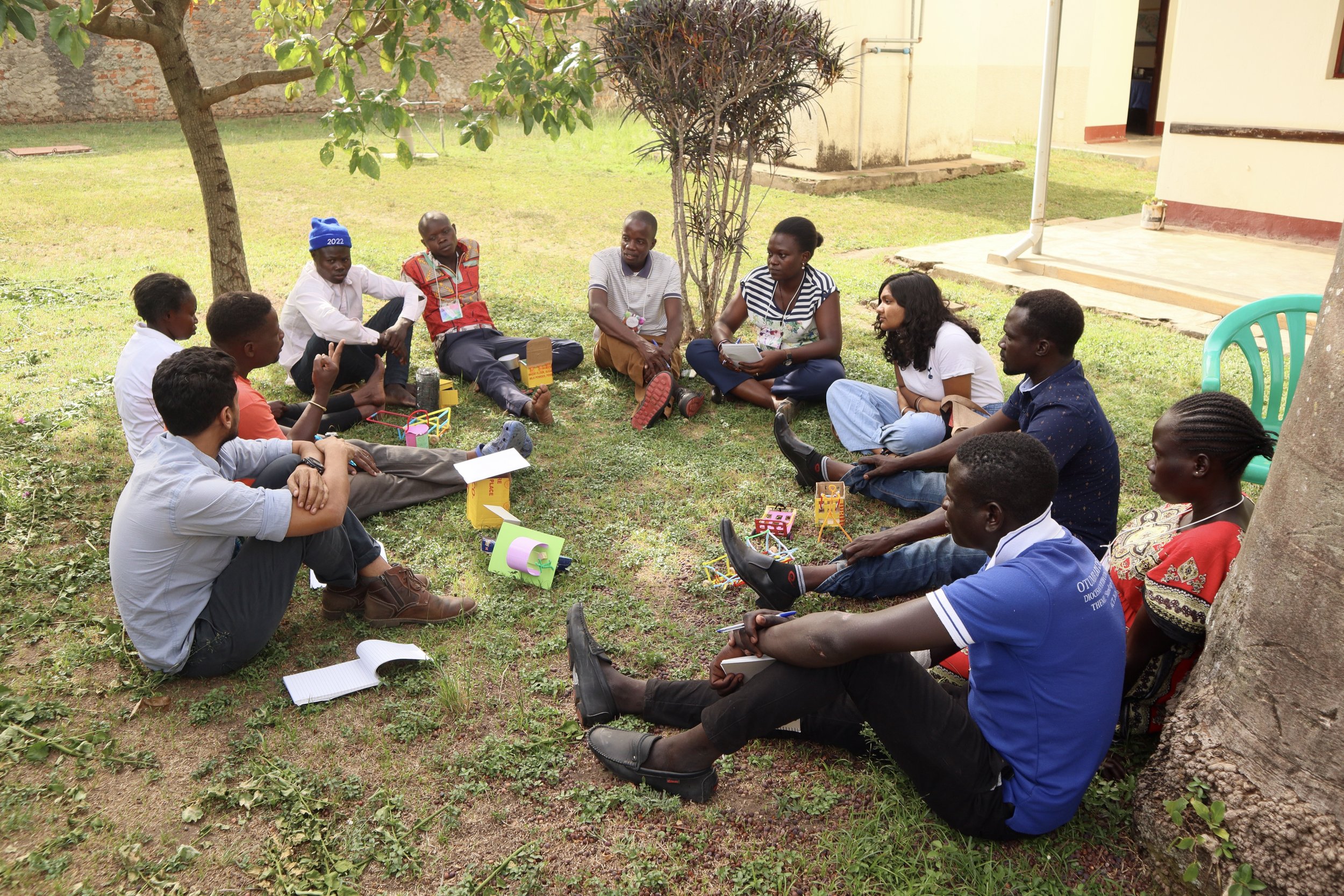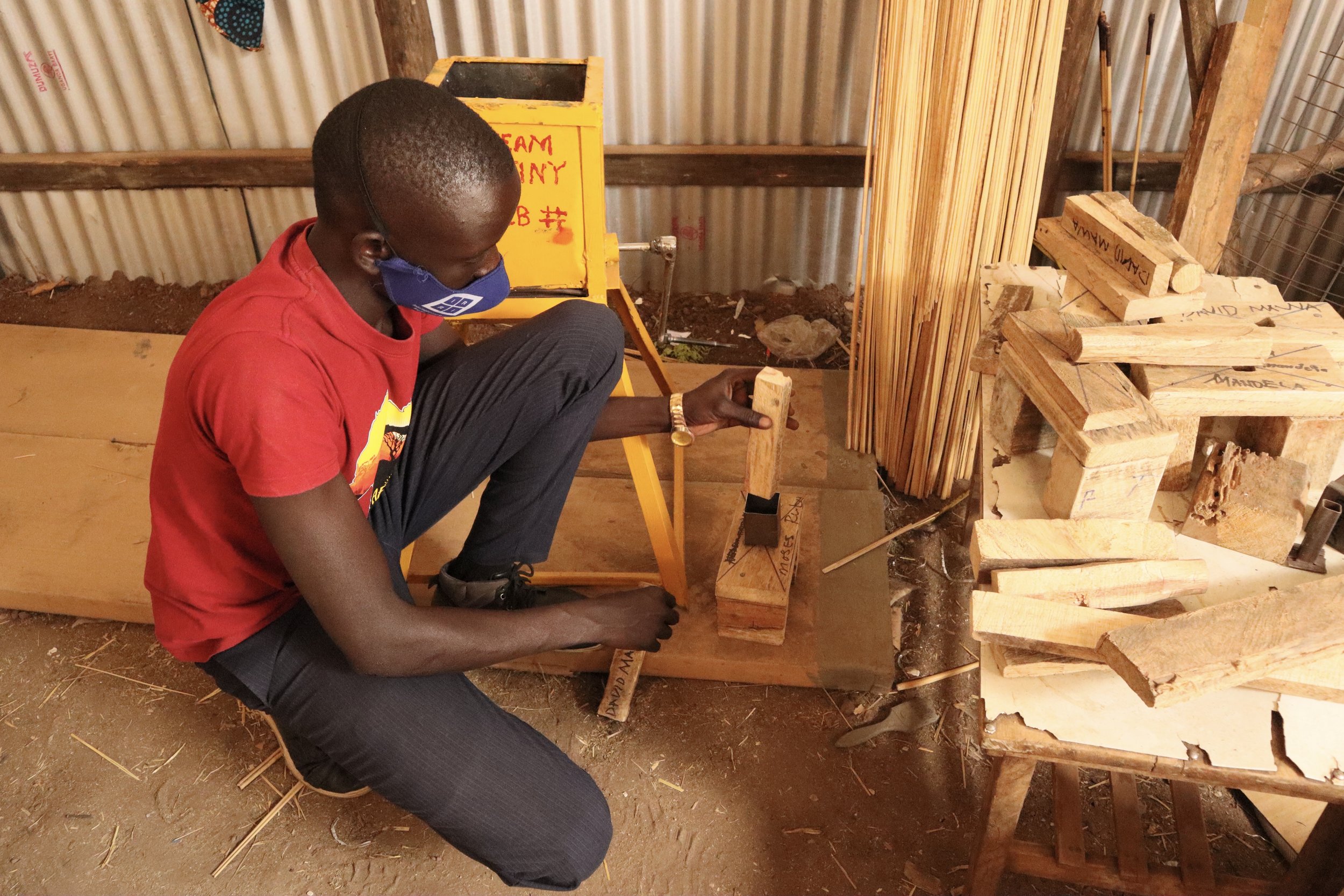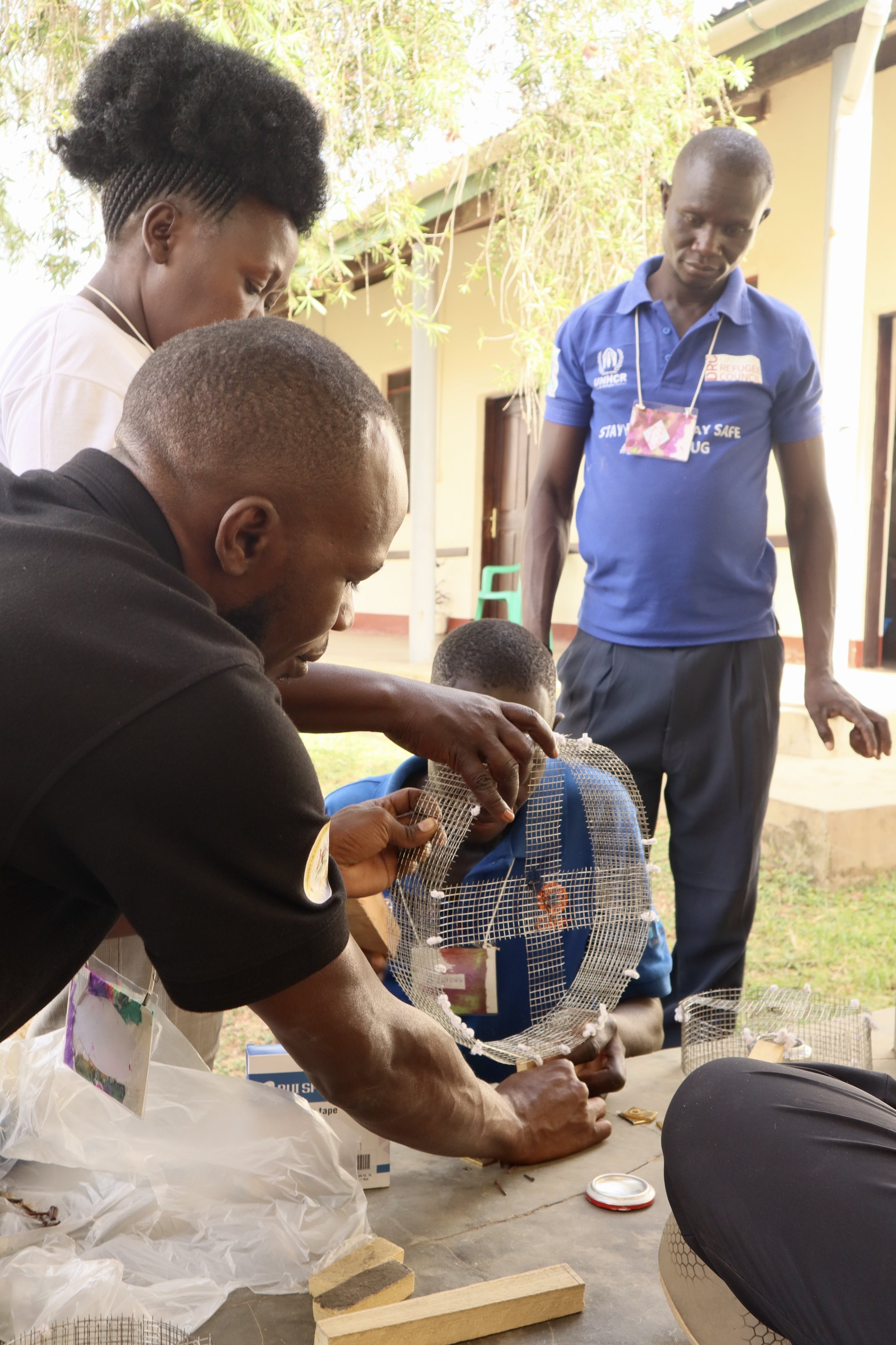Creative Capacity Building in Uganda: Scaling the Impact of Refugee-Led Design Solutions
Participation in MIT D-Lab’s Co-Creation Summit in West Nile
This March, I joined MIT D-Lab’s Co-Creation Summit in Arua, Uganda, which promoted locally designed solutions to energy and livelihoods challenges in refugee settlements. Through the creative capacity building (CCB) methodology, summit participants practiced identifying, building, and scaling solutions through hands-on skills building trainings and teamwork. This approach of teaching design thinking for the aims of supporting self-led innovation and expanding income-generating opportunities is part of a broader effort within the humanitarian sector to promote refugee self-reliance and resilience. Given the Response Innovation Lab’s mission to support learning and innovation within the humanitarian sector, I attended the summit to document firsthand the transformative potential of the CCB methodology.
The summit brought together refugees, host community members, humanitarian practitioners, and technical experts to create diverse design teams in which each person contributed a unique perspective. Team building activities acknowledged the different backgrounds and experiences people came from, raising awareness about the role of real and perceived power differences, and establishing shared expectations for collaboration. These characteristics of the summit – each person having a particular role in the team and emphasis on developing a common understanding of team dynamics – were critical for co-creation.
Co-Design Summit wheelcart team and the refrigerator team preparing for information gathering in the field by trying out their questions for the community with each other. Photo: MIT D-Lab/Miu Kumakura
“Getting to know each other was not just a formality; rather, it was an integral step to encouraging innovative thinking. ”
The objective of the summit was to identify pathways to scale the impact of technologies that were developed at previous CCB trainings. These technologies were a ground-nut roaster, an oven, a wheel cart, a refrigerator, clean fuel, and a washing machine. Each was valued for increasing productivity, reducing intensive labor, and supporting income-generating activities. Alongside these work-related benefits were the social benefits: promoting gender equality, freeing up time, and advancing sustainable practices.
To realize these benefits, the teams had to tackle challenges with pricing, accessing building materials, competing with traditional methods, and moving beyond pilots through establishing sustainable business models. Listening in on conversations, I noticed that teams were addressing these challenges through question-oriented discussions, asking each other what they know and identifying the questions they would ask during needs assessment and user testing.
“I learned how design is not purely about creation, but that it is preceded, supported, and validated through information gathering activities that traditional definitions of design may not encapsulate. Design is at first question-driven and only after answer-driven.”
Joseph Ssempira, a Creative Capacity Building trainer from the NGO Kulika Uganda, showing his team a hand-made charcoal press. Photo: MIT D-Lab/Miu Kumakura
This became clearer through conversations with two entrepreneurs: Peter Kennedy and Samuel Lemen. Both are refugees from South Sudan residing in Rhino Camp and are graduates of CCB trainings. When listening to their reflections on the trainings and their innovations, I immediately felt their entrepreneurial spirit and was excited by their solution-oriented positive thinking.
Peter is a thirty-two-year-old father of three who owns a carpentry and blacksmith business. He came to Uganda in 2016 as a student to escape the famine in South Sudan. In 2021, he learned about CCB and began a two-month training through which he learned how to design, gather information, and operate a business. He applied his new skills to solve a problem he faced in his work as a farmer: worn-out tools made his work inefficient, so he designed a machine to sharpen.
Though his innovation was meant to respond to a challenge in his own life, he recognized the value it has for others. After completing CCB, he also completed an entrepreneurship training and established a retail shop from where he can serve his community using his machine. Today, he stopped working as a farmer to fully focus on his business, which is his main income source. He collects 1000 Ugandan shillings for every tool he improves and is saving with the hopes to send his children to school. He told me he is proud to be the only one in his area that provides tool sharpening services, amassing customers from five zones in Rhino camp.
Sam arrived in Rhino camp in 2016 and attended a one-month CCB training in March 2021. After, he graduated to an energy training also developed by MIT D-Lab, which applied the CCB methodology to address the lack of electricity in refugee settlements. Sam was part of a team that built a charging box using solar power. The innovation received such positive community feedback during the testing phase that his team decided to make a business out of their creation. They opened a charging shop in Ofua zone with two of their charging boxes and marketed their business by offering free charging services on their opening day. Word about their innovation spread, and today Sam and his team operate a business that brings in 32,000 to 33,000 Uganda shillings in revenue per month
Four lessons learned on Creative Capacity Building
First, CCB is a critical tool for empowerment. Not only did the trainings provide an opportunity for Peter and Sam to create income-generating assets, but also, they fostered a positive mindset in which both feel more confident in their abilities to take ownership of the future.
Second, while piloting innovations has its challenges, scaling up has its own set of difficulties. CCB helps with building a product that participants could bring to market; however, participants often struggle with accessing the finance and resources that would allow them to grow further as entrepreneurs. This is an opportunity for further private sector engagement in the refugee response.
Third, thinking and working locally maximizes impact. Supporting local actors from refugee and host communities means tapping into the broad knowledge they have on community needs, enhancing their skills, and promoting sustainable approaches to tackling ground-level challenges. Recognizing that existing knowledge gaps on local actors and their activities make it difficult to provide this support, the Learning Hub of Response Innovation Lab has been developing a new database of settlement-level actors to support connections among partners and promote their work. Understanding the local ecosystem is the first step to increasing efficiency and delivering change.
Fourth, innovation begets more innovation. Having completed CCB, Peter and Sam are exploring more opportunities to expand their learning on the design process, increase their skills as engineers, and strengthen their business acumen. I hope time proves Peter and Sam successful in their efforts to scale the impact of their innovations, moving towards the future they desire
This article is adapted from an article originally published on MIT D-Lab’s blog page. Miu attended the Co-creation Summit as a former student of MIT D-Lab’s Humanitarian Innovation class.
About the author:
Miu Kumakura is an intern at the Learning Hub of the Response Innovation Lab. She has been living in Uganda for a six-month fellowship that explores the humanitarian-development nexus through a focus on sustainable approaches to refugee response that proactively build resilience, support innovative thinking, and encourage self-resilience. At the Learning Hub, she assisted on projects related to refugees’ financial inclusion, localization of the refugee response, and private sector engagement in humanitarian action. She graduated from Harvard University in 2021 with a BA in Government.
Photo: MIT D-Lab/Miu Kumakura




